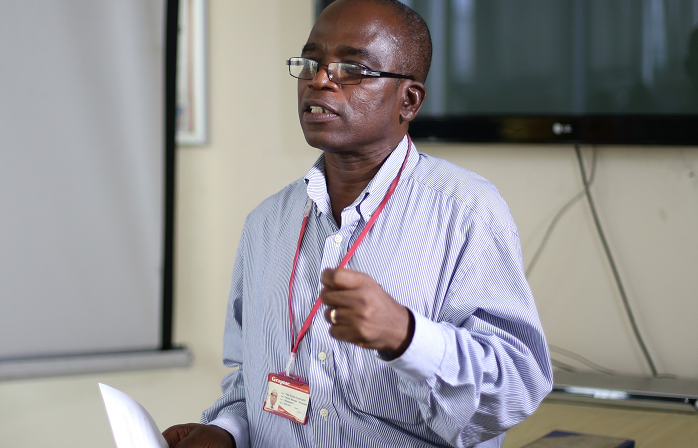My association with the Graphic Communications Group Limited as a permanent employee will end this year as I am due for retirement. I have since the beginning of the year attempted to give account of some of the developments I have gone through serving as a journalist with the company. The account continues.
In 1992, after the referendum, the Institute of Economic Affairs (IEA) organised its maiden conference. The Daily Graphic covered the opening ceremony of the three-day conference. The government did not support the conference. Only the Secretary for the Interior, Nana Akuoko Sarpong, out of the invited political office holders, attended on the first day.
The Ministry of Information ordered a total blackout of proceedings of the conference. When as News Editor I presented the story at our editorial conference, the Editor who was privy to the directive, Mr Sam Clegg, angrily shouted at me to keep the story until I became the editor. He had at the time never spoken to me in such a harsh tone. I was, thus, baffled.
IEA maiden conference
On the second day of the conference, the government realised its potential for democracy and national development. A large number of government functionaries attended the conference subsequently. The blackout was lifted and the story from the opening ceremony was published.
After the publication, Mr Nat Mensah, who was the Photo Editor and incidentally died this month and is yet to be buried, who we referred to as “the man who speaks with machine-gun rapidity”, addressed me as the editor of the Daily Graphic. I was initially confused until he drew my attention to the fact that since Mr Clegg said the story could only be published when I became the editor and it had been used, to him I had become the editor.
Coverage of political parties
When the ban on political parties was lifted in 1992, and especially after the April 1992 referendum, the ban on partisan political party activities was lifted. There were beehives of activities towards the formation and registration of political parties. We were constrained in our coverage of the activities of the emerging parties because the members of the editorial conference were divided as to whether it was lawful or otherwise to give vent to such activities. It was, therefore, agreed that we interview the Chairman of the Interim National Electoral Commission, Mr Justice Josiah Ofori-Boateng. The late Breda Atta-Quayson was tasked to interview him.
The report from the interview did not resolve the matter, since it did not address the germane issue. Accordingly as News Editor, I continued to present stories of political parties at editorial conferences. On the fourth continuous day, Mr Clegg warned me never to bring any such story to the conference but I was reticent. So when I presented a story from one of the parties on the fifth day, he burst in the seams because to him I was insolent and stubborn. Therefore when that evening I went to the make-up room and found a story on the National Democratic Congress being used, I whispered that I did not understand the double standard of the editor, who incidentally happened to have entered the room just as I made my comment.
He invited me to his office and really drilled me. Dejected and disconsolate, I resolved to resign from the corporation but the Advertisement Manager, Nana Baiden, advised me against that and rather asked me to demand that I be changed from the News Desk. I listened to him and wrote for the transfer. However, the response from Mr Clegg gave me consolation and hope because to date, it is the best testimonial that I can carry to any place to seek employment.
He wrote to the effect that of all the senior personnel at the editorial department at the time, I was the only one he could trust to do the right and professional things if he was not around, and that he was never afraid to leave things in my hands if there was the need for him to be absent from work. He explained that the stress of the job sometimes created tension which he sometimes carried too far and that such developments should not be taken as a lack of confidence or betrayal of trust. He said there was no need to change me but since I disagreed with the rest of them, I should go and interview Justice Ofori-Boateng. I interviewed him and the concomitant is that the Daily Graphic became more open, diverse and tolerant.
Thus, when Prof. P.A.V. Ansah indicted the media in 1992, he was charitable with the Daily Graphic. Prof. Ansah wrote thus, “The performance of the state-owned radio and television was predictably dull, flat, insipid, bland, prosaic and lacked inspiration. In the area of the print media, the Graphic and Times played their routine role, with the Graphic getting better, more tolerant and accommodating, while the Times got more myopic, intolerant, unilateral, drab, uninteresting, dogmatic and utmost fanatical.”
He did not spare the private media which he described variously as “scurrilous, defiant, impertinent, insulting, iconoclastic, mendacious, titillating, prurient, captivating, impish, impudent and insolent”.

